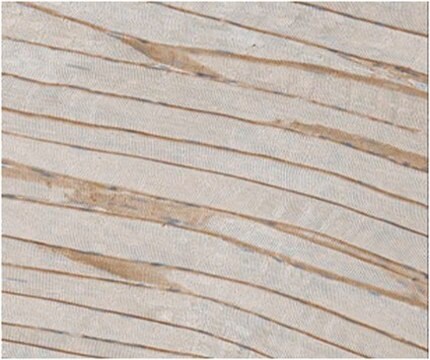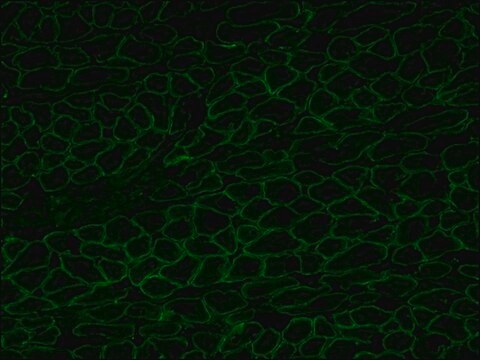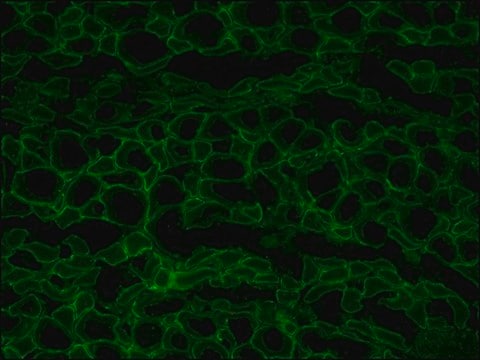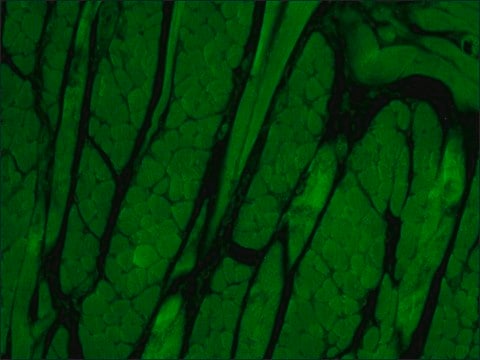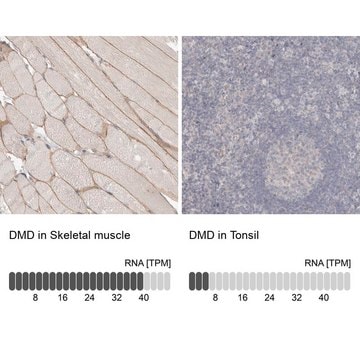D8168
Monoclonal Anti-Dystrophin antibody produced in mouse
clone MANDYS8, ascites fluid
Synonym(s):
Dystrophin Antibody, Dystrophin Antibody - Monoclonal Anti-Dystrophin antibody produced in mouse
About This Item
Recommended Products
biological source
mouse
Quality Level
conjugate
unconjugated
antibody form
ascites fluid
antibody product type
primary antibodies
clone
MANDYS8, monoclonal
species reactivity
chicken, rat, human, pig, rabbit, mouse
technique(s)
indirect ELISA: suitable
indirect immunofluorescence: 1:400 using frozen human or animal muscle tissue sections.
microarray: suitable
western blot: suitable
isotype
IgG2b
UniProt accession no.
shipped in
dry ice
storage temp.
−20°C
target post-translational modification
unmodified
Gene Information
human ... DMD(1756)
mouse ... Dmd(13405)
rat ... Dmd(24907)
General description
Immunogen
Application
- immunohistochemistry
- immunofluorescence
- double immunofluorescence terminal dUTP nick-end labeling (TUNEL)
- immunoblotting
Biochem/physiol Actions
Target description
Other Notes
SAB4200764 Anti-Dystrophin antibody, Mouse monoclonal
clone MANDYS8, purified from hybridoma cell culture
Disclaimer
Not finding the right product?
Try our Product Selector Tool.
recommended
related product
Storage Class Code
10 - Combustible liquids
WGK
WGK 3
Flash Point(F)
Not applicable
Flash Point(C)
Not applicable
Certificates of Analysis (COA)
Search for Certificates of Analysis (COA) by entering the products Lot/Batch Number. Lot and Batch Numbers can be found on a product’s label following the words ‘Lot’ or ‘Batch’.
Already Own This Product?
Find documentation for the products that you have recently purchased in the Document Library.
Customers Also Viewed
Our team of scientists has experience in all areas of research including Life Science, Material Science, Chemical Synthesis, Chromatography, Analytical and many others.
Contact Technical Service


